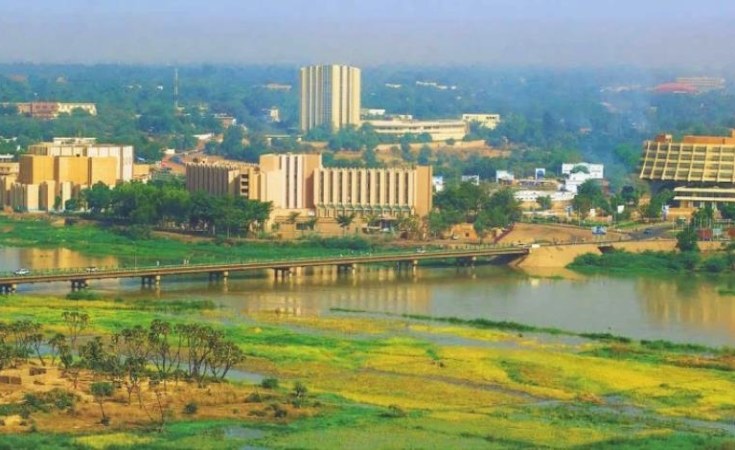Nairobi, Kenya — Conditions for people in Niger are getting worse, as security appears to be deteriorating, according to regional experts who spoke with VOA. Prices of staple foods such as rice and cooking oil have increased, while the country has endured more violence in the past three weeks than it had since the beginning of the year.
While life may seem normal in Niger because shops are open and people are going to work, what's really happening is quite different, according to Laura Esposito, the country director for the Norwegian Refugee Council, who spoke to VOA from the capital, Niamey.
"In general, the living conditions of the population in the country are worsening due to the negative effects of the closure of the borders with Nigeria and Benin, where most goods come from, and due to the power cuts we are suffering in Niamey, but also other towns," she said. "This brings scarcity of key goods and increase of prices of, for example rice, cooking oil, sugar."
Esposito said it's important to remember that Niger was already a very vulnerable country.
"There are already 4 million people that needed life-saving humanitarian assistance -- and this was before the latest crisis -- and more than 3 million face acute food insecurity," she said. "Niger is also hosting many refugees from the neighboring countries -- roughly 250,000 -- and there are also lots of internally displaced people that are fleeing the violence of non-state armed groups. Their needs are not met."
Only 40% of humanitarian funding that is needed to provide assistance has been raised so far this year, Esposito said, noting that Niger's budget is heavily dependent on foreign aid and loans -- none of which are currently available.
The junta that toppled President Mohamed Bazoum say they decided to take over because he was failing to secure the country.
From January to July this year, under the now-deposed president, there were two insurgent-related attacks; that number has increased since the coup, according to Fahiraman Rodrigue Kone, chief project manager of the Sahel team at the Bamako-based Institute for Security Studies.
"We know that among the three Sahel central countries here, Niger was one of the most stable, had a very effective and efficient response policy against the jihadist insurgency in the Sahel," Kone said. "Since this coup, we have seen more and more attacks, we have registered four attacks in the area of Niger, which means that certainly jihadists' groups are taking the opportunity of this political instability."
Kone, who spoke from Ouagadougou, said while security was challenging in some parts of Niger, especially in the Tillaberi region bordering Mali and Burkina Faso, it was not as bad compared to other parts of the Sahel.
"The strategy of Niger under Bazoum, there was this military fighting pressure on the jihadists' groups, but there was also non-military action like community dialogue with some jihadist leader groups' military, in order to push for disengagement of combatants from those groups and there were also socio-economic development actions," Kone said.
Negotiations for a peaceful return to civilian rule are ongoing, but Kone noted that a military intervention by the Economic Community of West African States, or ECOWAS, has not been ruled out.
"ECOWAS has in the past intervened in some countries already -- Gambia, Cote D'Ivoire, Liberia, Sierra Leone -- and the characteristics of the intervention was that they were really based on consensual and united voice for [that] intervention," he said. "Right now, we are in a situation of many divisions -- political divisions within West African countries, ECOWAS members -- but also outside, neighboring countries like Algeria and even Chad doesn't want this intervention."
In the medium- to long-term, Kone said the divisions that exist will complicate the security situation and could allow space for jihadist groups to flourish.


